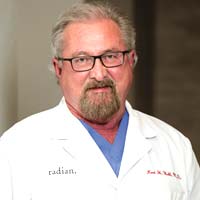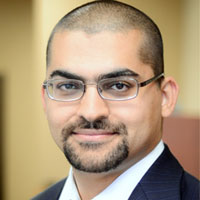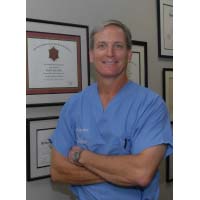Best Hair Transplants in Texas (2024)
Hair transplants in Texas are gaining popularity thanks to the publicity given by hair transplant experts, media and celebrities who have undergone hair transplants successfully. Texas now boasts a good number of hair loss treatment clinics that offer advanced hair restoration solutions including Follicular Unit Extraction (FUE), ARTAS robot-assisted hair transplants, and stem cell treatments.
Here is a look at the most popular hair transplants in Texas.
McGrath Medical
: The hair transplant clinic owned by Dr. Daniel McGrath is located in Austin, Texas. Daniel McGrath is a member of the ABHRS, the only certification program recognized by the International Society of Hair Restoration Surgery. McGrath Medical practice is dedicated to the natural restoration of hair utilizing the latest proven hair loss treatments and hair transplant techniques including FUE. The hair clinic also offers eyebrow transplants.
Limmer Hair Tranplant Clinic
: Located in San Antonio, Texas, Limmer Hair Tranplant Clinic is owned by Dr. Brad L. Limmer who specializes in Follicular Unit Hair Transplantation virtually since this important procedure was first pioneered by his father, Bobby L. Limmer, in the late 1980’s. The clinic uses Microscopically Magnified Follicular Unit Transplantation technique to produce minute grafts of one to four hair follicular units and transplant them into balding areas. Patients benefit from a natural looking hair indistinguishable from normal hair on the scalp.
Arocha Hair Restoration
: Arocha Hair Restoration clinic is located in Houston, Texas. Dr. Arocha and his experienced staff perform ultra refined follicular unit hair transplantation exclusively. They regularly provide surgeries exceeding 3000 follicular unit grafts per session, with their largest session to date being 6,000 grafts. Arocha Hair Restoration clinic specializes in Ultra Refined Follicular, Unit Hair Transplantation, Prescriptions for Propecia and Corrective Hair Transplantation. The hair restoration practice also offers free personal consults.
Lam Institute for Hair Restoration
: The Lam Institute for Hair Restoration is located in Plano, Texas. The hair transplant clinic is owned by Dr. Lam who only operates in a fully accredited surgical center awarded by the Joint Commission. Dr. Lam’s specialties include male hair transplant, female hair transplant, crown hair transplant, corrective hair transplant, ethnic hair transplant and eyebrow hair transplant.
Dr. Robert Jones Hair Transplant Center in Dallas, Texas
: The Hair Transplant center offers free consultations to all residents of Dallas and most other regions of Texas. In addition to surgical hair transplants (both FUT and FUE),
Dr. Robert offers Platelet Rich Plasma (PRP) treatments, genetic hair loss test, ultrafine grafting, scar repair, trichophytic closure, hair transplant training, celebrity hair consultation and eyebrow & eyelash transplants.
Hair transplant in Texas is now closer to you. Get ready for a new look with natural looking hair transplants.
Posted in
Hair Transplant by:
Sang Ale
2018-10-03 | Hairfear
Frequently asked questions about hair transplant procedures
How much does a hair transplant cost?
Hair transplants can vary in price based off of the area in the world that you are interested in getting a hair transplant as well as the size of the area where you may need a hair transplant. Experienced doctors in the United States will often charge some of the highest prices for a hair transplant worldwide and this is why so many travelers make the move to other parts the world like Turkey, India, Thailand, Mexico...etc for their hair transplants.
Will a hair transplant hurt?
Although hair transplants may look like a particularly
unpleasant or painful experience is actually very little discomfort involved
with the surgery itself. Hair transplants are always done under an anesthetic so there's absolutely zero pain during the treatment itself. Many people actually relate the process as being very similar to going to the dentist for filling or root canal. Mild pain can persist over the course of postop treatment but he generally just resumes for a few days.
Who can deliver the best surgery?
It's usually best to consider working with surgeons who have and IAHRS certification or international alliance of hair restoration surgeons recognition. IAHRS can often deliver recommendations for the best surgeons in each particular area.
Is this scarring noticeable?
Any type of hair transplant will require the use of incisions throughout the scalp. There can also sometimes be a small scar from the donor area towards the back of the scalp. Asking to look at photos of the surgeon's previous work will help you to see roughly how bad the scarring could be. In most cases an experienced professional can limit the look of scarring and noticeable marks from the surgery.
How long does it take for the hair to grow?
In most cases hair growth will start within eight months and you can start to see a full effect from the hair transplant after a full year. The initial signs of growth can usually start between 3 to 4 months after the surgery.
Are the results permanent?
The hair follicles that are transplanted are generally the ones which are genetically resistant against the symptoms of baldness. As long as you receive hair loss treatment later in your life after the symptoms of balding have started to subside, you can have a better chance at permanent results.
While everyone know you've had surgery?
If you want to limit the chance that people may find out about your surgery it's important to give at least three weeks of healing as the surgical area will be affected and red just after surgery. After around a month of healing it can look far less noticeable. You could consider wearing a hat while time passes or opting for some extra time off if possible.
How long should I rest after surgery?
It's recommended to rest for at least a few days after surgery so that your body can recover. Trenton to over exert yourself and limit sexual activity, running in the gym for around 10 days after surgery.
Is it possible to lose more hair as a result of surgery?
There is always a chance of shock loss which happens when the hair is weak and miniaturizing after the surgery. As long as the surgeon is choosing the correct hair follicles and performing the surgery well it's possible to minimize the chance of this happening however.
Will I need another hair transplant?
The need for another transplant really depends on the individual. With a solid foundation surgery and working to potentially bolster results with drug therapy, you can improve the stability of the hair that was transplanted as well as prevent further loss. Getting a hair transplant early
on in your 20s or early on in life could lead to needing long-term transplants as hair loss can be progressive.







